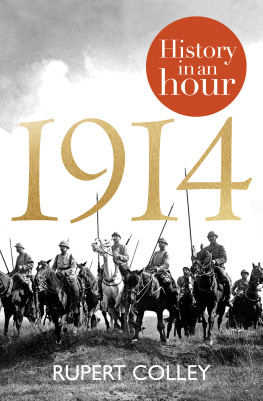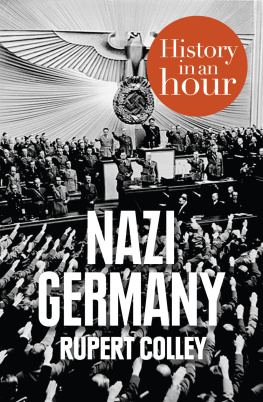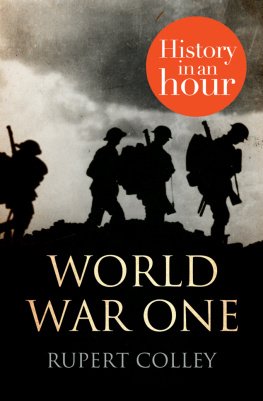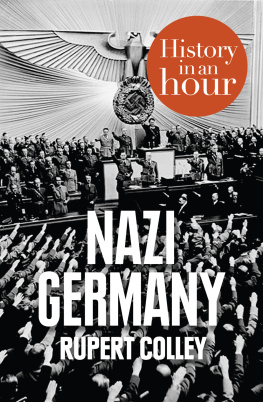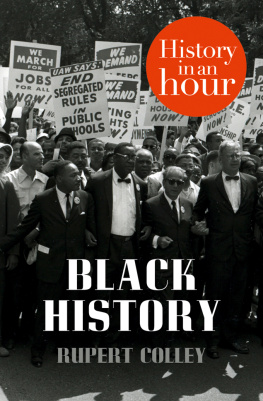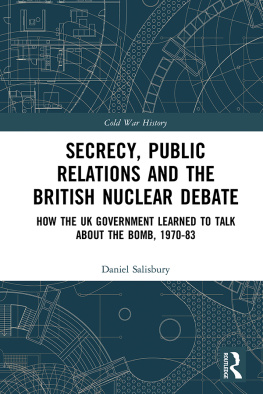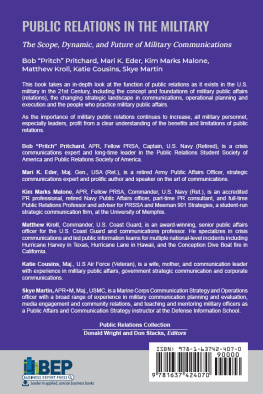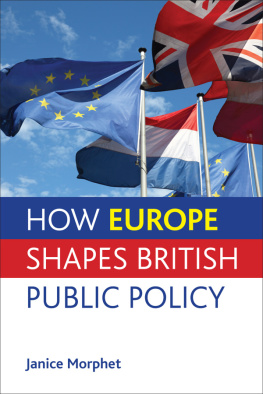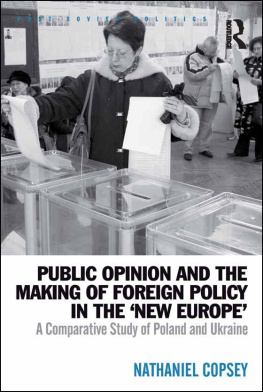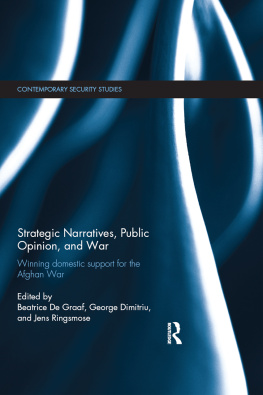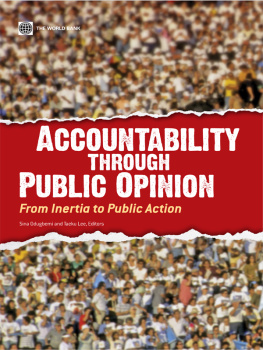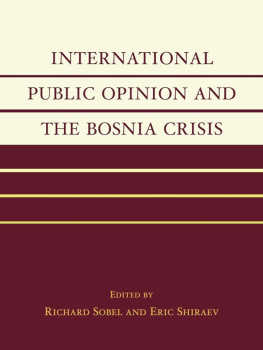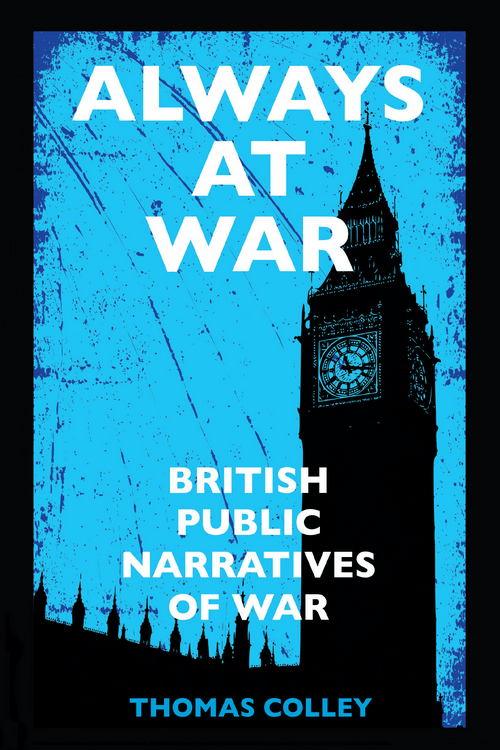
Always at War
This book studies strategic narratives from the perspective of ordinary citizens. It examines the stories told by a broad cross section of British society about their countrys past, present, and future role in war, using in-depth interviews with 67 diverse citizens. The open-ended and inductive approach brings to the fore the voices of ordinary people in ways typically absent in existing public opinion research. In this respect, it models a bottom-up, narrative methodological approach applicable to a range of countries and foreign policy issues.
Compelling narratives are considered integral to successful foreign policy, military strategy, and international relations. Often narrative is conceived so broadly it represents all discourse, making it hard to identify. Thomas Colley separates narrative from other modes of discourse and examines the way individual events combine to create overall patterns. Research on strategic narratives has focused overwhelmingly on states, while citizens narratives are rarely examined. The formation of strategic narratives is informed by the stories governments think their people tell, rather than those they actually tell.
One unexpected finding was that rather than perceiving distinct periods between war and peace, British citizens see their country as so frequently involved in conflict that they consider it to be continuously at war. At present, public opinion appears to be a stronger constraint on Western defence policy than ever. Always at War complements a small but significant body of quantitative research into British attitudes to war and presents an alternative case in a field dominated by US public opinion research.
Thomas Colley is a Teaching Fellow in War Studies at Kings College London.
Always at War
British Public Narratives of War
Thomas Colley
University of Michigan Press
Ann Arbor
Copyright 2019 by Thomas Colley
All rights reserved
This book may not be reproduced, in whole or in part, including illustrations, in any form (beyond that copying permitted by Sections 107 and 108 of the U.S. Copyright Law and except by reviewers for the public press), without written permission from the publisher.
Published in the United States of America by the
University of Michigan Press
Manufactured in the United States of America
A CIP catalog record for this book is available from the British Library.
Library of Congress Cataloging-in-Publication Data
Names: Colley, Thomas, 1983 author.
Title: Always at war : British public narratives of war / Thomas Colley.
Description: Ann Arbor : University of Michigan Press, 2019. | Includes bibliographical references and index.
Identifiers: LCCN 2019005772| ISBN 9780472131440 (hardcover : alk. paper) | ISBN 9780472125722 (ebook)
Subjects: LCSH: War and societyGreat Britain. | Great BritainMilitary policyPublic opinion. | WarPublic opinion. | Narrative inquiry (Research method)
Classification: LCC HM 554 . C 638 2019 | DDC 303.6/6dc23
LC record available at https://lccn.loc.gov/2019005772
Cover credit: Richard Budd Design
Contents
Digital materials related to this title can be found on the Fulcrum platform via the following citable URL: https://doi.org/10.3998/mpub.10168682
Page vi Page vii
Sometimes in life one is struck by the realisation that ones assumptions about the way others think are wrong. I finished high school a few months after 9/11. Like so many others, I remember exactly what I was doing at the time. My adult life as a British citizen was shaped by this tumultuous event. In both the media and academia, 9/11 is routinely portrayed as a day the world changed, where the post-Cold War period ended and the War on Terror began. Not just for American citizens, but across the world, it was an event so horrific as to be unforgettable. Or so I thought. Listening to the stories of everyday people that inspired this book, I began to realise that even knowledgeable, politically engaged British people had begun to forget 9/11, or at least that war in Afghanistan started because of it. People explained to me that they could remember that the First World War began after Franz Ferdinand was shot, that World War Two began when Germany invaded Poland, that the Falklands War began when Argentina invaded the Falkland Islands, and that the Gulf War began when Iraq invaded Kuwait. Yet puzzlingly they could not remember why Afghanistan began, despite it being preceded by one of the most unforgettable events in human history. My assumptionsand those of many policymakers and scholarsappeared to be wrong. People do not always narrate the stories you think they do.
The sense that the way people understand the world might not be the same as the way political elites think they do motivated me to research how ordinary citizens understand war by analysing the stories they tell about it. The result is a groundbreaking, bottom-up investigation of a topic usually studied from the perspectives of presidents, prime ministers, and policymakers. The book presents a radically different viewpoint, based on the frames of reference everyday Page viii people use to interpret war rather than those policymakers assume that they use.
The focus is not just on what people say but specifically the stories they narrate. This reflects a desire to provide clarity on the concept of narrative, which now appears so ubiquitous that it has come to mean almost anything anyone says or thinks. It seems to be widely taken for granted that strategic narratives can be so powerful that simply structuring a series of words in the form of a story can achieve anything from guaranteeing business success to persuading people to blow themselves up. And yet there is relatively little clarity on what a narrative is and isnt. Even when people define it clearly, few appear to separate narrative from other ways of communicating when they study it.
The theoretical focus on narrative and the empirical focus on how British citizens understand war give the book relevance to different audiences in different ways. Primarily an academic text, its attempt to clear up theoretical uncertainty about what narratives are and how they persuade will be of interest to researchers engaging with strategic narratives and narrative theory in a range of fields. Its ground-up, inductive methodology is applicable to those investigating social issues from the perspective of ordinary citizens, whatever their specialism. The introduction and chapter 1 will be of particular interest to these readers. The primary topic, however, concerns war, brought to life through the stories of everyday British people. After the introduction, those more interested in this may wish to skim chapter 1 and move forward from chapter 2. These stories have rarely been told and will potentially be of interest to scholars in politics and international relations, military historians, sociologists, foreign policy practitioners, and public opinion researchers. International relations researchers may be particularly interested in the focus on how national identity and ontological security are constructed from the ground up, through the stories individuals narrate about the nation and war.
It is a difficult time to be writing about British politics given the rapidly evolving situation following the Brexit vote to leave the European Union. It is striking how similar the stories we tell today are compared to the past, particularly when it comes to Britain and war, given its militarys almost constant engagement for more than three centuries. Still, I hope readers will forgive any moments when the book appears to be held hostage to ongoing events.
Next page

